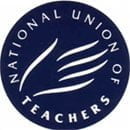Teachers in the NUT have voted three to one in favour of a
one day strike on 24th April. This is an overwhelming vote to reject
the degrading pay offer of New Labour,
and reflects the deeper disgust of teachers at the education policies of the
government.
The offer of 2.45 % for September 2008, when real inflation
is effectively around 6%, is nothing more than a pay cut. This comes on top of similar
below inflation pay rises over the past few years, amounting to a sequence of
reductions in the living standards of teachers.
This will be the first national strike over pay for 21 years,
and reflects a deep mood of resentment and frustration by teachers. A
resentment which comes not only from pay, but as a result of deterioration in
conditions of employment.
 For the strike to be fully effective it is important that
For the strike to be fully effective it is important that
planning for the action is discussed and organised within the schools and that
it fully involves the membership. In this planning it will be important to link
the poor pay offer with the wider conditions of teachers’ employment and the
policy of New Labour to shift the
ethos of education towards a business model. For teachers this touches upon the
issue of work overload and new regimes of appraisal; within the broader education
sector it touches on the drive to privatise state education through the City Academies
programme, SATs testing and school league tables.
There is an increased opportunity to strengthen the one-day
action. The NUT executive is now attempting to co-ordinate the strike action
with the UCU. NUT members who are teaching in FE colleges are currently being
balloted to undertake co-ordinated strike action on 24th April. This
action forms part of the pay claim for FE teachers for 2008-9, where the fight
is for a 6% increase in pay and meaningful negotiations to re-establish common
conditions of service across all colleges, which were destroyed under the
Thatcher and Major governments.
Success
for the industrial action lies not only in its preparation, but also in the
action to be taken following the one-day stoppage. Pay, conditions and the
wider attack on state education are linked together. A mobilised membership
should begin now pressurising the NUT executive for a clear plan of action
following the 24th April, and develop firm co-ordination proposals,
not only with the UCU, but with other public sector unions.
Class sizes
Class sizes are a vital matter for both teachers and society
as a whole. How can teachers provide the kind of education we want our kids to
receive when they are struggling to keep the attention and interest of
overcrowded classes? Conference called for a reduction to maximum 20 per class
by 2020. In England the average is currently over 26.
NUT leaders attacked Academy sponsors for backdoor
privatisation and their attempts to force teachers to choose between signing an
official commitment to the ‘values’ of the sponsors, or leaving their jobs. The
National Association of Schoolmasters/ Union of Women Teachers (NASUWT)
conference also voted to ballot on strike action against proposed Academies
where staff oppose the transfer, plus legal action in defence of their rights
under European TUPE Regulations






